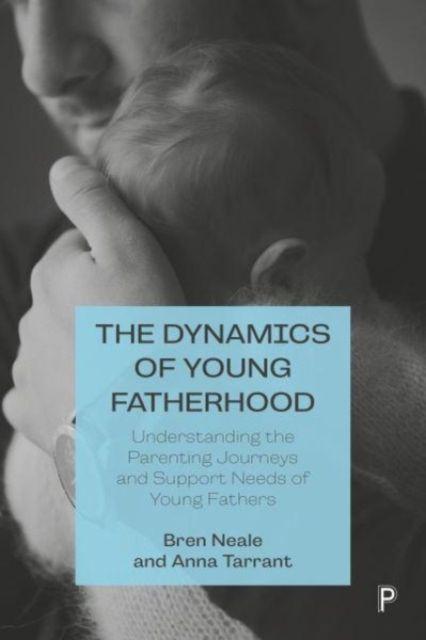“One of the most important books on adolescent and young adult fathers ever published. Moving interviews document how young fatherhood is shaped by personal, familial, institutional and societal influences, illuminating factors that facilitate or impede their efforts to be engaged, caring parents and the implications for medical and social services and public policy.” Mark S. Kiselica, Penn State Harrisburg

12 March 2024 • Update
Out Now! The Dynamics of Young Fatherhood

Based on the more extended study of young fatherhood in the world, this book provides a rich, detailed, state-of-the-art account of the unfolding lives of young fathers (aged 25 and under) in the UK, providing key insights into the joys of parenthood, as well as the key challenges they navigate as they enter parenthood at a young age. This book also provides important practice and policy relevant insights for any professional that engages with families.
Book Overview
Around 1 in 10 children born in the UK are fathered by men under the age of 25. These men are often from socially disadvantaged areas and frequently overlooked in both research and practice settings. Using findings from a major Economic and Social Research Council study, Following Young Fathers, and supplemented with additional data from Following Young Fathers Further, the authors focus on the transitions of young fathers into early parenthood and their unfolding lives thereafter.
As negative popular and media discourse around young fathers begins to shift, policy makers, practitioners, researchers and students will find future policy and practice directions designed to nurture the potential of these young men and their children.
Authors
Bren Neale is Emeritus Professor of Life course and Family Research (University of Leeds, School of Sociology and Social Policy, UK) and a fellow of the Academy of Social Sciences. Bren specialises in research on the dynamics of family life and intergenerational relationships and has published widely in this field. Bren is a leading expert in qualitative longitudinal (QL) research methodology.
From 2007 to 2012 she directed the Economic and Social Research Council- funded Timescapes Initiative, as part of which she advanced QL methods and archiving across academia, and in government and non- governmental organisation settings. She continues to provide support and training in this methodology for new and established researchers across the disciplines.
Anna Tarrant is Professor of Sociology at the University of Lincoln, where she is also the Director of the Centre for Innovation in Fatherhood and Family Research. She has been funded to the tune of £1.7 million by the UKRI Future Leaders Fellowship scheme to lead Following Young Fathers Further, a seven- year qualitative longitudinal and participatory study about the lives and support needs of young fathers. Her research specialisms include men and masculinities; family diversity and dynamics; and methods of qualitative secondary analysis and co- creation.
Anna has built a corpus of publications in these areas including monographs and edited collections. Notable recent contributions include Men and Welfare (2023, Routledge, with Linzi Ladlow and Laura Way), Fathering and Poverty (2021, Policy Press), Men, Families and Poverty: Tracing the Intergenerational Trajectories of Place-Based Hardship (2023, Palgrave Macmillan) and Qualitative Secondary Analysis (2020, Sage) with Kahryn Hughes.





